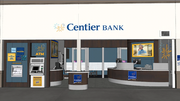Blog
Dynamic Currency Conversion delivers benefits all around
April 16, 2014 by Terry Dooley — SVP & CIO, ITS, Inc
With global tourism on the rise and the payments industry working to generate additional revenue (as well as added customer value at ATMs and the point of sale), the financial and retail industries are becoming increasingly interested in dynamic currency conversion.
DCC — sometimes called cardholder preferred currency — refers to a financial service that allows debit and credit cardholders to choose to have the cost of a transaction made in a foreign country converted into their home currency at a competitive exchange rate.
DCC is designed to benefit acquiring financial institutions, merchants, and cardholders. One of the benefits of DCC for merchants is that it can noticeably reduce the number of potential disputes brought by consumers.
For FIs, the benefits of incorporating DCC revolve around improving merchant and treasury services.
For consumers, DCC can provide increased convenience and confidence with each transaction outside of their home country.
In a DCC transaction, both the business and the customer know precisely the amount of the sale in the chosen currency, which means no waiting or guessing at conversion rates or fees.
A recently released Mercator Advisory Group study, "Dynamic Currency Conversion: A Growing Global Opportunity," provides an overview of DCC and highlights the prospective advantages it offers to issuers, retailers, and consumers worldwide. The research also points out the potential issues that could hinder its growth.
"In recent years, industry buzz about dynamic currency conversion has amplified. The reason is clear: DCC is emerging at a perfect point in the global payment industry's evolution," Tristan Hugo-Webb, associate director of international advisory service at Mercator, said in a press release.
He added, "In 2014 and for the foreseeable future, international travel is expected to rise. The United Nations World Tourism Organization estimates that by 2030, international tourist arrivals will exceed 1.8 billion annually, which translates to a robust, yet consistent, market demand for foreign exchange transactions."
With awareness and use of DCC on the rise, FIs should not ignore the competitive edge that DCC-capable cards can provide. It can allow an FI to better serve customers who travel internationally, and at the same time, increase revenue.
 ChatGPT
ChatGPT Grok
Grok Perplexity
Perplexity Claude
Claude












